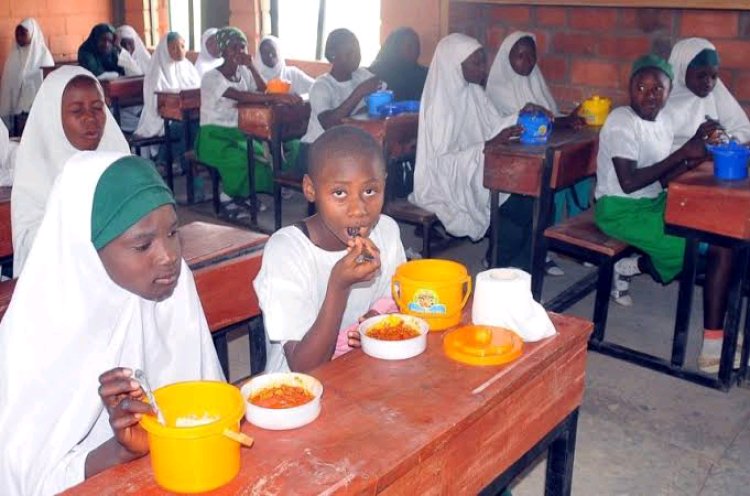Kaduna's N4bn School Feeding Boosts Enrollment for 25,000 Pupils
The event included the slaughtering of a sacrificial ram, a special Eid lunch, the cutting of a cake, and the distribution of free gifts. It provided an opportunity for Dr. Buhari-Ado to interact with pupils who were previously out-of-school.

The Kaduna State government has announced that approximately 25,000 pupils across the state’s 23 local councils have benefited from its school feeding programme, which has cost N4 billion so far. The initiative aims to provide qualitative educational opportunities for all children, including almajiri children.
This was revealed by Dr. Fauziya Buhari-Ado, the Special Assistant to Governor Uba Sani on the school feeding programme, in a statement released in Abuja. Dr. Buhari-Ado made the comments while hosting Islamic and underprivileged school pupils at the Umaru Musa Yar’Adua bilingual primary school in Maraban Gonda, Sabongari, as part of the Eid el-Kabir celebrations.
READ ALSO:Senator Karimi Launches Bursary Awards for Kogi West Students
Dr. Buhari-Ado noted that the school feeding programme has significantly boosted school enrollment and retention rates while stimulating the local economy. “No fewer than 25,000 school pupils spread across the 23 local councils of the state are already benefiting from the school feeding programme,” she stated.
The event included the slaughtering of a sacrificial ram, a special Eid lunch, the cutting of a cake, and the distribution of free gifts. It provided an opportunity for Dr. Buhari-Ado to interact with pupils who were previously out-of-school.
RECOMMENDED FOR YOU:No Nigerian University Makes Top 1000 Global Universities Ranking for 2025
AbdulHamid Ahmed, an official from one of the Islamic schools, praised the programme, noting its positive impact on increasing school enrollment among vulnerable children. The village head of Filin Malawa, Magaji Datiya, also expressed gratitude to Governor Sani’s administration for the initiative.
The Kaduna State government remains committed to ensuring that children from less privileged backgrounds have access to quality education through continuous support and programmes like the school feeding initiative.





